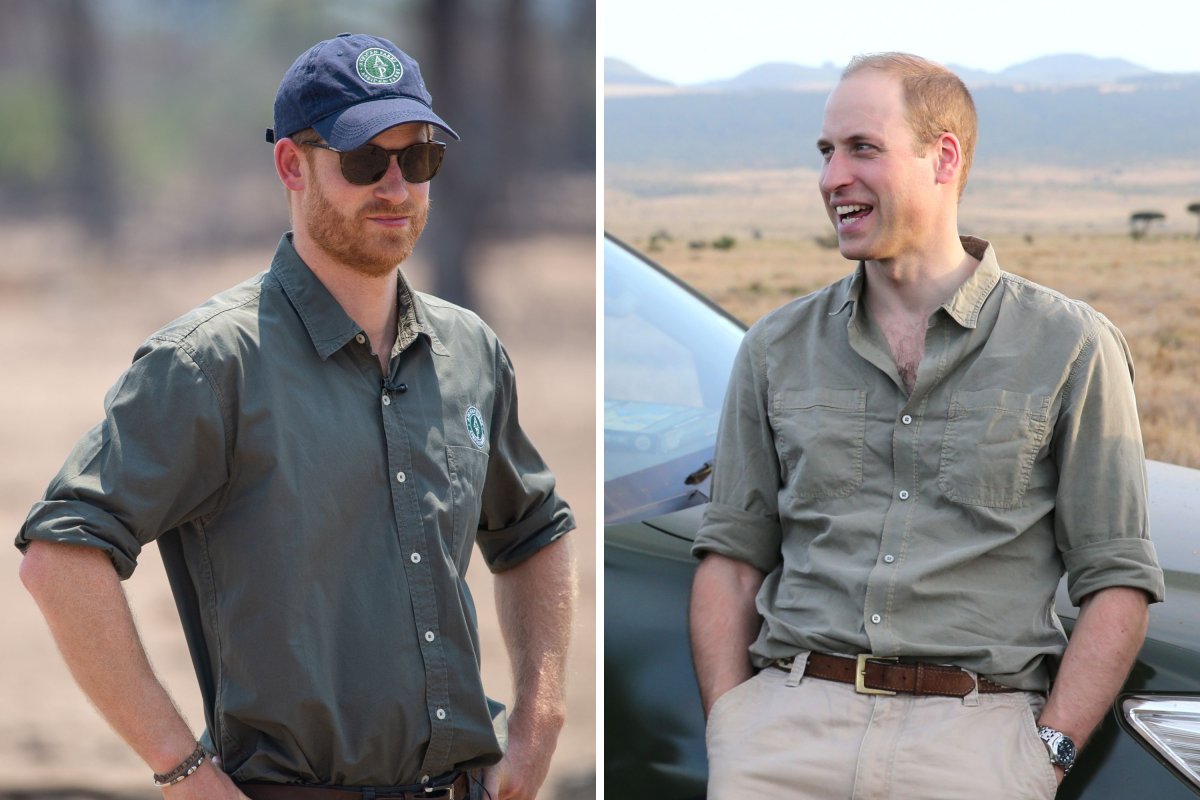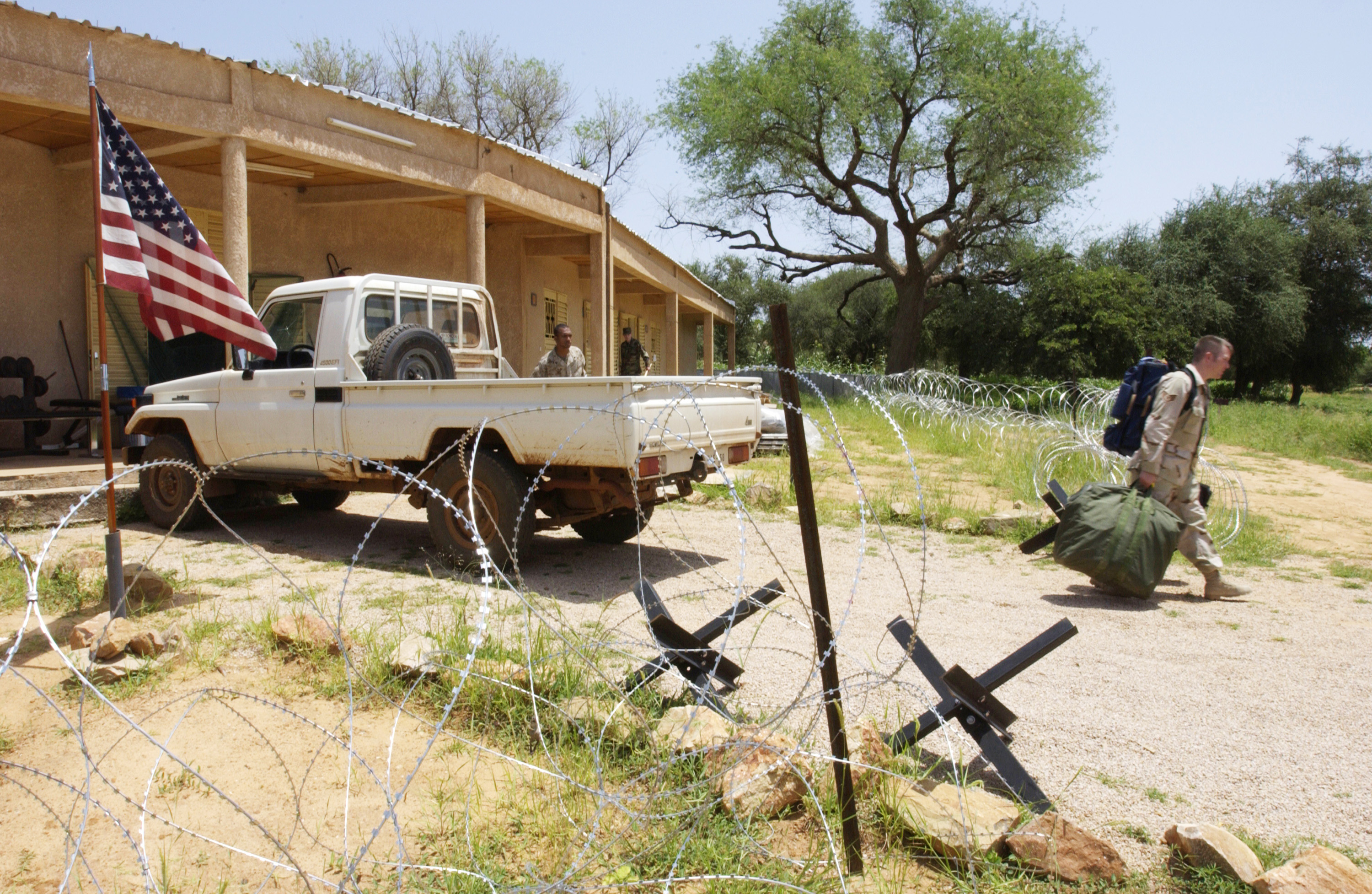Prince Harry has faced calls to quit his role with conservation charity African Parks two years after Prince William came under fire for comments about the human population of the continent.
Both brothers have fond memories of Africa and work with charities in the continent who target poachers and aim to protect the environment.
They have come under pressure over allegations of racism and colonialism leveled by the same charity, Survival International, which advocates on behalf of indigenous people.

Prince Harry, African Parks and the Baka Tribe
Survival called on Prince Harry to quit his role as a director of African Parks over allegations made against rangers working for the conservation organization who patrol in Odzala-Kokoua National Park in Congo.
Among abuse allegations, Ella Ene, a woman from the Baka tribe, was quoted by The Mail on Sunday describing how a ranger ordered her into the forest at night, warning "I'll shoot you."
"I was holding my baby while being raped and trying to protect him," she said. "My first reaction had been to protect my baby. It was very violent."
A Baka teenage boy, aged around 18, was groomed for sex by another ranger, Survival said, while other men had hot wax poured over their backs or were beaten.
African Parks announced an investigation into the allegations after Survival wrote to Harry and Meghan Markle in May, however, the campaigners were shocked to discover months later in October that Harry had accepted a promotion despite the scandal.
The group's concerns also extend beyond specific incidents to the entire model for conservation practiced by African Parks.
Their letter warned: "The scale and volume of violent intimidation, land theft, torture and rape make clear that this is not aberrant behavior by a few individuals, but a widespread and systematic pattern of abuse.
"It arises from abusive, colonialist and racist structures. Many conservation organizations adhere to a colonialist model of 'fortress conservation,' in which Indigenous peoples—far from being recognized as the best conservationists—are evicted from their ancestral land to make way for 'parks,' and are kept out by paramilitary-trained guards, leading to terrible human rights violations."
African Parks manages Odzala-Kokoua on behalf of the government in the Republic of Congo and seeks to protect the natural environment from what it sees as unsustainable reliance on natural resources by local communities.
However, Survival's campaign director Fiore Longo told Newsweek the Baka people are hunter gatherers who have lived off the forest for thousands of years and are now being blocked from entering it, pushing them toward starvation.
Longo said: "We found out that Prince Harry had joined the board of directors at the end of October and I was quite shocked.
"Before he had an honorary title, it was more symbolic. I watched the Netflix series and thought he will care about the Baka because he's so outspoken on racism and things that until now were not being said in the royal family.
"So I was positive and we thought that he was going to do something. If he says something that can make a difference, but then when he joined the board of directors, that is the legal representative body it has the governance of the organization.
"That's when we thought, 'Why is he joining the board of an organization that we have just told him has human-rights abuses and which the CEO hasn't been very helpful?'"
Harry and Meghan's Archewell Foundation said in a statement: "When the duke became aware of these serious allegations, he immediately escalated them to the CEO and chairman of the board of African Parks, the appropriate people to handle next steps."
African Parks said in a statement Friday: "The African Parks Board has commissioned an independent investigation by a London-based legal firm (Omnia Strategy LLP), in partnership with two specialist human-rights legal counsels from Doughty Street Chambers, to investigate all the allegations."
The organization added that it had: "Conducted a thorough cross-examination of all allegations received against our register of known grievances, to understand which grievances we were already aware of and had been resolved, and which are allegations that we were not aware of.
"Two are known incidents that have both been investigated in the past, the rangers involved fired and handed over to the national law enforcement authorities for prosecution."
The organization said it has also: "Engaged a specialist Baka anthropologist to assist the park team in building on our existing understanding of the social context of indigenous people around Odzala, in an effort to develop an improved Baka engagement strategy, as well as to determine opportunities for better integrating the Baka into park operations."
The statement added that Odzala is 3.3 million acres, and there is a 1.1-million-acre zone where access is granted for "hunting rights, harvesting of flora and honey, access to medicinal plants, fruit, wood and other forest products."
Prince William and the Tusk Awards
The Prince of Wales came under fire in 2021 for a speech he gave during the Tusk Conservation Awards 2021 at BFI Southbank, in London, on November 22, 2021.
William, a patron of the charity, told guests: "The increasing pressure on Africa's wildlife and wild spaces as a result of human population presents a huge challenge for conservationists, as it does the world over.
"But it is imperative that the natural world is protected not only for its contribution to our economies, jobs and livelihoods, but for the health, well-being and future of humanity. We owe it to our children and future generations to act now."
"Africa's extraordinarily rich biodiversity has the ability to sequester vast amounts of carbon," he added. "But this is only possible if these landscapes remain truly intact and are protected as functioning eco-systems.
"Our wildlife plays a vital role in keeping nature in balance and maintaining this precious cycle of life. If we keep destroying or removing the threads that make up the natural tapestry of life on earth, it will simply begin to break down, exacerbating climate change still further."
Prince William says mounting pressure on Africa’s “wild spaces as a result of human population” is a “huge challenge for conservationists”.
— Survival International (@Survival) November 24, 2021
Staggered by the racism & hypocrisy?
👇Kenyan ecologist @m_ogada on Westerners criticizing African "overpopulation." https://t.co/kFBlXKaoof pic.twitter.com/ZuL3vmSDOP
Among those to criticize the prince, Franklin Leonard, movie executive and founder of the Black List, wrote on X: "'There are too many Africans' is quite the position."
Survival International also wrote a more detailed rebuttal: "Prince William says mounting pressure on Africa's 'wild spaces as a result of human population' is a 'huge challenge for conservationists'. Staggered by the racism & hypocrisy?"
They then shared a video of ecologist Mordecai Ogada, who acts as a consultant for them, arguing population density is greater in Europe and Asia than in Africa.
"Africa is more sparsely populated than either Europe or Asia. The absolute numbers of people in Africa are far from being a problem for our environment, more so for the very light footprint of the people.
"For example, the Masai people and many other indigenous ethnic groups live life in a manner that has a very low impact on the environment.
"Especially since they need it for grazing their animals, they need to get wood fuel from the environment etc. So it's the behavior—that's a big mistake that many westerners make. They are looking at human numbers not human behavior."
Analysis
There is a degree of crossover between the broader point Survival made about "fortress conservation" by African Parks and the argument advanced by William about the impact of human population.
In both cases, Survival essentially argued people with some of the lowest carbon footprints in the world were being punished disproportionately.
In the case of the Baka, that meant being driven to starvation to protect the wildlife in the Republic of Congo while at the same time tourists are allowed to pay up to $12,000 to stay in eco-lodges in the same park after flying in on planes.
In William's case, Survival effectively argued the human population of Africa was being blamed, while Europe, the U.S. and other industrialized economies continue to pump greenhouse gases into the air.
Conservation may not be seen as a controversial subject in Britain and the United States, but these two scandals have both shown it has the potential to be.
Jack Royston is Newsweek's chief royal correspondent based in London. You can find him on X, formerly Twitter, at @jack_royston and read his stories on Newsweek's The Royals Facebook page.
Do you have a question about King Charles III, William and Kate, Meghan and Harry, or their family that you would like our experienced royal correspondents to answer? Email royals@newsweek.com. We'd love to hear from you.
Uncommon Knowledge
Newsweek is committed to challenging conventional wisdom and finding connections in the search for common ground.
Newsweek is committed to challenging conventional wisdom and finding connections in the search for common ground.
About the writer
Jack Royston is Newsweek's Chief Royal Correspondent based in London, U.K. He reports on the British royal family—including King Charles ... Read more
To read how Newsweek uses AI as a newsroom tool, Click here.








